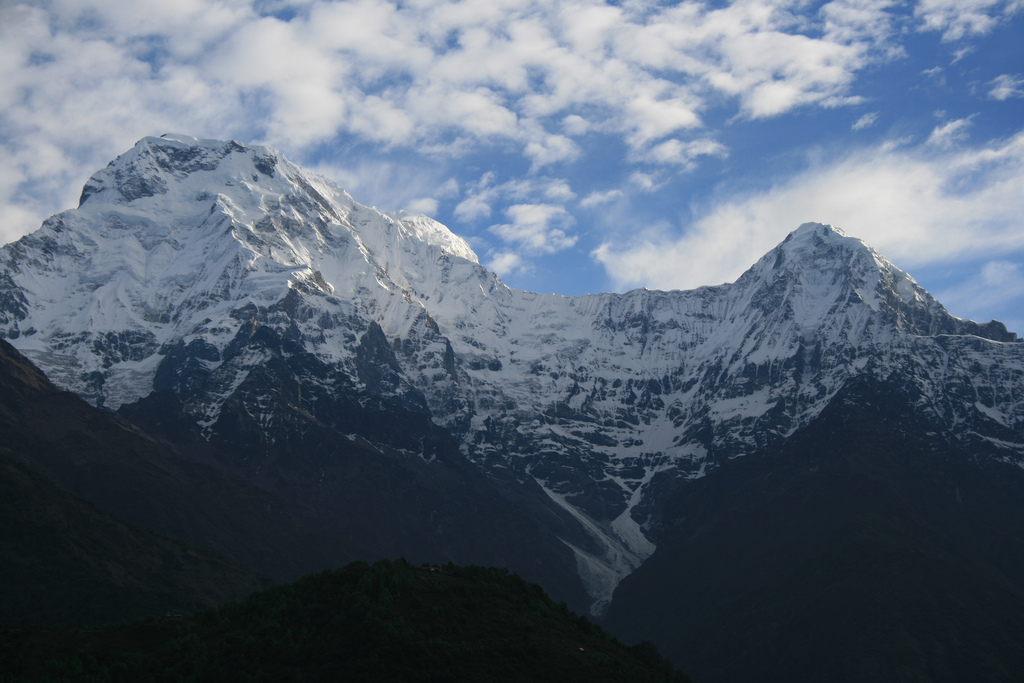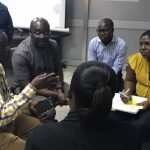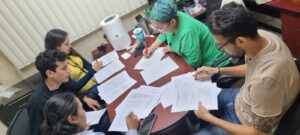
To address geographical diversity in peer review we need to include Southern voices better
Diversity and inclusion are hot topics at the moment in scholarly communication. With INASP’s long-term commitment to reducing inequity in research and knowledge systems at local and international levels this is a welcome trend.
Ensuring that researchers, journal editors and others from the Global South are properly included in global scholarly communication discussions and in the production and dissemination of knowledge is vital if global and local challenges are to be properly addressed and all talent is unlocked.
However, true diversity needs to go beyond getting Global South research published; researchers globally should also be involved in all stages of the process.
Last week we joined in with Peer Review Week, an annual, worldwide event celebrating the important role that academics and others play in providing feedback and checks on each other’s work to help ensure that the research published is good, clear and accurate. In common with many of this year’s academic publishing events, Peer Review Week 2018 had the theme of diversity and inclusion.
Throughout the week, INASP’s AuthorAID website published interviews with researchers from Africa and Asia sharing perspectives of peer review as authors, reviewers and editors, as well as advice for researchers from journal editors in both the North and South. The perspectives are valuable, interesting and well worth reading in full but some common themes emerge from the interviews and wider discussions this week.
1. Peer review is important
The first point, which all the interviewees raise, is how important peer review is. Haseeb Irfanullah from Bangladesh sees peer review as an example of ‘good karma’:
You help a fellow researcher to improve her/his research and research communication, and, in turn, someone else from other side of the world would do the same favour for you when you need it.”
Brenda Asiimwe Kateera, who is from Uganda but now works in Rwanda, echoes this:
As an author I have found the feedback from peer review has been very beneficial. It has greatly improved the quality of my manuscripts and grant applications especially if the peer feedback is scientifically sound and relevant. [Participating in] peer review has kept my skills of critical appraisal sharpened as I read through and provide feedback to manuscripts.”
Ismael Kimirei from Tanzania agrees:
Science cannot be advanced without the works of peer reviewers.”
Last week we also saw the JPPS journal assessment initiative from AJOL and INASP presented as a finalist in the ALPSP Innovation in Publishing awards. Having a good peer review process is a key criterion in the JPPS assessment of journals published in Africa, south Asia and Latin America and something that editors are passionate about.
2. Peer review can be particularly hard for authors in low- and middle-income countries
There have sometimes been negative experiences of peer review too. Some of last week’s bloggers shared experiences of rejection following peer review. One common reason for rejection can be poor language or scientific writing skills, which hamper the ability of the reviewer to find the good research within a paper.
As a reviewer, I have received poorly written articles. The main problem was the language and I had to struggle to get it straightened out because the science was good. My advice to authors is to clearly edit your papers before they are submitted,” says Ismael Kimirei.
He also shared his own experience of one paper that was almost rejected by a reviewer who favoured a different methodology rather than the one used.
As Farooq Rathore from Pakistan observes:
Authors based in LMICs are at a disadvantage when their manuscript is reviewed by a published expert based in a developed country. Many times, researchers based in developed countries cannot comprehend the challenges authors based in LMICs face. These reviewers evaluate the manuscript very strictly and sometimes give comments which are not applicable to the research being done in LMICs.”
3. Diversity of peer review is needed
Lack of contextual understanding can be addressed by drawing on a more diverse group as reviewers. In his article, Haseeb Irfanullah describes how his journal in 2005 began actively broadening its pool of reviewers, resulting, he explained, in the journal now receiving submissions from around the world and gaining international recognition. His experiences illustrate not only the importance of increasing diversity but also of an environment where journal editors and others from all over the world can share their insights into the whole process.
The need for diverse voices as reviewers and editors is echoed in a video by Egyptian learning and teaching researcher and AuthorAID mentor Maha Bali, who notes in a great short video on the topic that sometimes “traditional peer review can act as a form of academic gatekeeping” to preserve the status quo. She suggests that journals should think about who they choose as reviewers and editorial board members and what power those people have in deciding the direction of journals. She also raises the challenge of doing good peer review of papers from radical thinkers or people with radical methodologies.
Whenever I’ve published anything with a very radical methodology for the field it has taken a very long time for a journal to actually accept it because it’s very different than what people expect.”
4. Peer reviewers need help and support
Diversity of reviewers can help counter biases in what research is selected for publication. However, skills development is also needed, as Brenda Asiimwe Kateera points out:
Many researchers are not trained or mentored in peer review and so may not place high importance on peer review or know how to produce a quality review.”
In such situations, she says, inexperienced reviewers can focus more on typos than on the quality of the research presented, a challenge that is increased if a paper is not written in the researcher’s native language and so factual errors are more easily missed.
Farooq Rathore agrees:
The biggest challenge is of having too many manuscripts and probably too few good quality peer reviewers. Many peer reviewers, especially in low- and middle-income countries (LMICs), are not formally trained for peer review and focus mostly on English grammar mistakes instead of focusing on the science.”
And it is not only reviewers in LMICs who need support; experienced reviewers in high-income countries often also need to be more aware of the contexts in which the research they are reviewing has been conducted.
5. There is support available
Last week’s posts shared a number of resources for getting support to do better peer reviews. These include: Publons Academy and online training resources from the American Chemical Society and Editage.
We also have a range of resources on peer review on the AuthorAID site, including a post published last week from Fiona Nash, Managing Editor of Academic Publications at the Royal Geographical Society.
In addition, support can – and does – also come from within countries. In Bangladesh, Irfanullah and other journal editors came together in 2016 to develop a roadmap for Bangladeshi publishing, with strengthening peer review as an important component. He shared more about this process in this blog post. Editors looking for advice about peer review and other journal processes may also find the Handbook for Journal Editors, published by INASP, a useful free resource.
Getting involved in Peer Review Week on AuthorAID, and providing an opportunity for reviewers and editors worldwide to share experiences and ideas was inspiring. Such discussions and broadening participation in peer review are so important if we want to fully realize the potential of all researchers in the production, sharing and use of knowledge.

 Previous Post
Previous Post Next Post
Next Post


